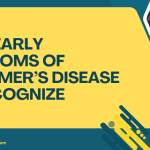Table of Contents
- What Are Neurodegenerative Diseases?
- Common Types of Neurodegenerative Diseases
- Causes and Risk Factors
- Symptoms and Diagnosis
- Current Treatments and Future Directions
Neurodegenerative diseases are a group of disorders characterized by the progressive degeneration of the structure and function of the nervous system. These disorders can profoundly impact an individual’s quality of life and their ability to perform daily activities. In this article, we will delve into five key insights that will enhance your understanding of these complex conditions.
What Are Neurodegenerative Diseases?
Neurodegenerative diseases primarily affect neurons, the building blocks of the nervous system. Unlike other types of neurological disorders, which may be caused by infections or injuries, neurodegenerative diseases typically result from the gradual degeneration or death of neurons. This process can lead to a wide range of symptoms, affecting cognitive function, movement, and bodily functions.
“Neurodegenerative diseases are not just medical conditions; they impact the entire life of the individual and their loved ones.”
FAQ
- What is the difference between neurodegenerative diseases and other neurological disorders?
Neurodegenerative diseases specifically involve the progressive loss of neuronal function, while other neurological disorders might be due to factors like trauma, infection, or vascular issues.
To learn more about the science behind neurodegenerative diseases, visit the National Institute of Neurological Disorders and Stroke.
Common Types of Neurodegenerative Diseases
Here are some well-known neurodegenerative diseases, each presenting unique challenges:
| Disease | Description |
|---|---|
| Alzheimer’s Disease | The most common form of dementia, leading to memory loss, cognitive decline, and behavioral issues. |
| Parkinson’s Disease | Characterized by tremors, rigidity, and bradykinesia (slowness of movement), affecting mobility. |
| Amyotrophic Lateral Sclerosis (ALS) | Affects motor neurons, leading to muscle weakness and atrophy, ultimately impacting movement and speech. |
| Huntington’s Disease | An inherited condition causing the progressive breakdown of nerve cells in the brain, affecting movement and cognition. |
| Multiple Sclerosis (MS) | Affects the central nervous system, leading to a range of symptoms, including mobility issues and cognitive changes. |
“Each neurodegenerative disease presents its own set of challenges, making awareness and education vital.”
FAQ
- Are there other types of neurodegenerative diseases? Yes, there are others, including Frontotemporal Dementia (FTD) and Creutzfeldt-Jakob Disease (CJD).
For insights into how neuro care differs from mental health care, you can read Neuro Care vs. Mental Health Care: Key Differences Explained.
Causes and Risk Factors
The exact cause of neurodegenerative diseases is often unknown, but several factors may contribute to their development:
- Genetics: Some neurodegenerative diseases have a hereditary component, such as Huntington’s disease, which is caused by a mutation in the HTT gene.
- Environmental Factors: Exposure to certain toxins, infections, and lifestyle choices can influence the risk of developing these diseases.
- Age: The risk of developing neurodegenerative diseases increases with age, making it more common in older adults.
- Gender: Some studies suggest that women may be at a higher risk for certain conditions like Alzheimer’s disease.
“Understanding the risk factors is crucial for early detection and intervention.”
FAQ
- Can neurodegenerative diseases be prevented? While there are no guaranteed prevention methods, adopting a healthy lifestyle, regular exercise, and mental stimulation may lower the risk.
For more detailed information on risk factors, check out the Alzheimer’s Association.
Symptoms and Diagnosis
Symptoms of neurodegenerative diseases vary widely depending on the specific condition but often include:
- Memory loss
- Difficulty concentrating
- Movement disorders (tremors, stiffness)
- Changes in mood or personality
- Speech difficulties
“Early identification of symptoms can make a significant difference in the management of neurodegenerative diseases.”
Diagnosis
Diagnosis typically involves a combination of medical history, neurological examinations, imaging tests (like MRI or CT scans), and cognitive assessments. Early diagnosis is crucial for managing symptoms and planning for the future.
FAQ
- How can I tell if someone has a neurodegenerative disease? Look for signs of cognitive decline, changes in motor function, and significant personality shifts. If you notice these symptoms in yourself or a loved one, consult a healthcare professional.
For tips on how to enhance neuro care, consider reading Top 5 Ways Caregivers Enhance Neuro Care Effectiveness.
Current Treatments and Future Directions
While there is currently no cure for most neurodegenerative diseases, various treatment options are available to help manage symptoms:
- Medications: Drugs like levodopa for Parkinson’s or cholinesterase inhibitors for Alzheimer’s can help alleviate symptoms.
- Therapies: Physical, occupational, and speech therapies can improve quality of life by enhancing mobility, independence, and communication skills.
- Lifestyle Changes: A balanced diet, regular exercise, and mental activities can help manage symptoms and improve overall health.
“Though there is currently no cure, the right combination of treatments can help individuals lead fulfilling lives.”
Future Directions
Research is ongoing in the field of neurodegenerative diseases, with promising advancements in gene therapy, stem cell research, and new drug development. Organizations like the Alzheimer’s Drug Discovery Foundation support innovative research efforts.
FAQ
- Are there any clinical trials for neurodegenerative diseases? Yes, many clinical trials are underway to explore new treatments and therapies. Websites like ClinicalTrials.gov provide information on ongoing studies.
Understanding neurodegenerative diseases is essential for fostering empathy, improving care, and advancing research. We hope this article has provided valuable insights into these complex conditions. If you have more questions or would like to share your experiences, feel free to leave a comment below!






